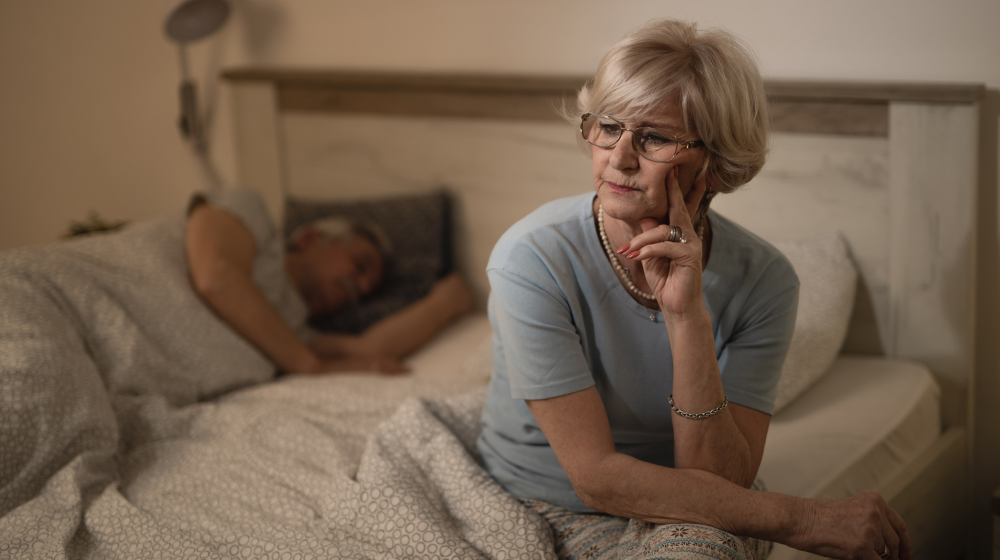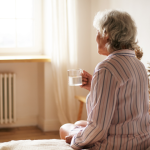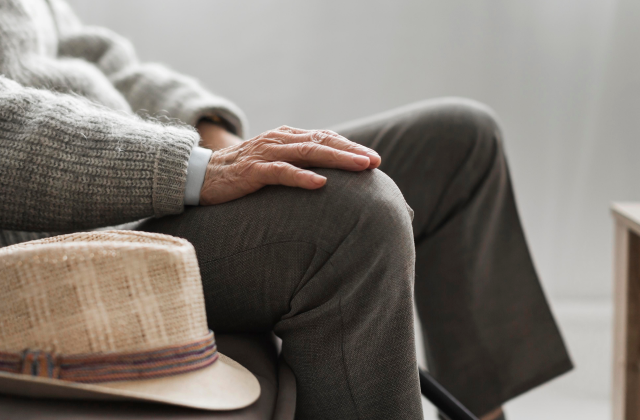Helping Elderly with Depression: Thoughtful Care for Difficult Times
Depression in the elderly has previously been referred to as a “silent” illness. It is often characterized by subtle symptoms, frequently confused with physical ailments, dementia, or confusion. Because depression is one of the most common mental illnesses among the elderly, it is frequently underdiagnosed and undertreated, creating a significant impact on the elderly person’s quality of life, well-being, and even lifespan. Older adults are faced with unique challenges that complicate the landscape of depression, including grief and loss, chronic illnesses, social isolation, and altering brain chemistry. Addressing the complexities of depression and elderly persons requires a thoughtful, compassionate, and educated approach. For Angel Care Inc. NY, supporting elderly with depression is about supporting hope, compassion, dignity, and sense of purpose.
Understanding Depression in Seniors: Complexities and Causes
Depression in the elderly has often been underdiagnosed and undertreated, not only because it can present atypically, but because it may only be associated with physical complaints often related to sadness, such and unexplained pain, unexplained fatigue, or changes in appetite. If a senior does not display the symptoms of depression that are immediately recognizable in younger people, their treatment is unlikely to be diagnosed in a timely manner.
Common triggers for depression in Seniors include:
- grief from loss of family members or friends;
- loss of independence;
- multiple chronic medical conditions;
- the cognitive and emotional stress of aging;
- declining health, and others.
When you consider that many seniors are also socially isolated due to their illness, or have recently moved to a facility, they may be more socially isolated than in the past while struggling with the added grief of losing their network of social support.

These feelings of being alone can compound their despair.
Understanding the complexities of depression and elderly persons is critical for caregivers and health providers. Recognizing that there is emotional distress that presents in different and nuanced ways is important. Mindfully acknowledging and acting upon the recognition of emotional distress in an elderly person can prompt a wide range of management interventions to support better health outcomes.
Coping with Depression in the Elderly: Avoiding the “One Size Fits All” Solution
Keeping in mind that depressed older adults require a holistic and comprehensive approach, this means utilizing integrative medicine that draws from medical depression treatment for seniors, psychosocial support, and strategies for behavioral change (lifestyle modifications). Pharmacotherapy, appropriately aligned to the senior’s health profile, is a viable component but it’s seldom an exclusive option. In addition to medications, senior psychotherapy, including:
- cognitive-behavioral therapy (CBT);
- interpersonal therapy;
- reminiscence therapy (to assist with grief processing), have been shown to be effective.
Seniors can be assisted in developing coping skills and emotional fortitude.
Beyond formal mental health therapies, mental health services for the elderly can include caregivers and family members who lend their ear, patience, and empathy to foster an environment of support, encourage seniors to participate in meaningful activities, return to hobbies or previous pastimes, and socialize in order to mitigate loneliness, and promote a sense of belonging and self-worth.
The Benefits of Professional Home Care for Senior Depression
Professional care services, such as those provided through Angel Care Inc. NY, offers continual personal care, which includes continuous support for the physical and emotional needs of a senior who is struggling with depression. Trained caregivers will pick up on near-invisible mood shifts, whether the senior has taken medication as prescribed, and emerging risks that could put a senior in a vulnerable position regarding experiencing the effects of depression.
Through companionship, routine, and gentle encouragement, home care can work to promote stability in the life of the senior, and provide emotional balance. Senior care can offer a unique level of personalization and support, which can foster trust and comfort in a person who may have very few outlets for sharing their feelings or asking for help without the fear of being judged.
Support for Depressed Seniors: Developing Trust and Connection
Support is felt, and can be greater than words, and is present when there is understanding and examples of shared humanity. Older adults living with depression often have experiences that have poured cold water on their willingness to show vulnerability, which can still be too daunting given cultural the stigma attached to mental health. Caregivers who come from a place of sensitivity, and are not in a hurry create a safe place for them to explore their feelings. Something as simple as a gentle hand on their shoulder or a good laugh can start a path toward emotional healing. Encouraging older adults to foster and maintain their relationships with family, friends and community groups expands their support system which can be a significant buffer against depressive episodes.
Holistic Approaches: From Treatment to Wellness
Fostering a sense of overall wellness is just as important as clinical management.
- Physical activity (even in small amounts) appropriate to the person’s ability (like a gentle walk or chair exercises) gives a boost to endorphins and benefits cognitive health.
- Nutrition guidance around maintaining a brain-healthy eating plan that includes plenty of omega-3 fatty acids, antioxidants, and vitamins supports mental health efforts.
- Cognitive stimulation through engaging puzzles, reading, and opportunities for self-expression can support continued cognitive agility and enjoyment.
- Providing access to local resources such as community service engagement opportunities, or spiritual opportunities all provide connections and engagement, as these things enhance feelings of purpose and fulfillment.
Empowering Families: Education and Support
Families carry much of the mental and practical load of caregiving. Family well-being is also linked to help for seniors with depression. Angel Care Inc. NY embraces caregiver educational programs to provide family members tools to recognize depressive symptoms in older adults, crisis management, and communication.
Family support groups and counseling can alleviate caregiver burn-out, while developing families’ capacity for resilience. Conceptualizing a collaborative team involving health care providers, caregivers and family consider many aspects of the senior’s life and recommends an understanding of and response to their current developmental stage.
Reflection: Walking Along-side Them in Their Shadows
Supporting older adults experiencing depression is deeply complex but necessary approach to blend clinician training with deep human compassion. At Angel Care Inc. NY, we are passionate about walking along-side older adults and their families during this difficult journey. We offer a non-medical care experience to these individuals that are personalized to pleasurable use of a senior’s time, honoring individuality, maintaining dignity, and fostering an inspired sense of hope. This is not the wish for their later dignity that depression cannot have to be the experience they wished for. People can smiles, find joy meaningfulness, and connections with others. If you are an older adult experiencing significant depression or if your loved one is living with depression, help is available. Remember, no one has to travel this journey alone.

As we age, our ability to move safely in our homes is extremely important when it comes to our independence and quality of life. For a senior, safe movement in the home is not only a matter of physical action, but also making the home safer and easier to use (reducing the risk of accidents) to foster safe movement with confidence. For us at Angel Care HHA, we recognize the importance of practical home safety tips for seniors to consider and caring help in home movement for seniors, to protect against injury and aid in wellness. Understanding Safe Movement in the Elderly Aging often comes with changes in strength, balance, and coordination that can greatly impact the ability to move safely at home, with falls being one of the most impactful accidents. Falls are among the leading causes of injuries to seniors and can have serious ramifications, such as fractures and hospitalization, along with the loss of independence. Thus, the important strategies that focus on fall prevention in the elderly should be embraced. Practical Home Safety Tips for the Elderly Gaining a safe space in one’s home for living, is the first step toward safe movement. Here are some of the key home safety tips for seniors to practice: Declutter walkways: Be sure all walkways are clear of loose rugs, cords, and other objects that may cause one to trip. Improve lighting: Ensure all areas of the home are well lit, especially hallways and staircases, and that light switches are accessible. Install grab bars and handrails: These provide stability and support, particularly in bathrooms, at stairs, and other important locations. Use non-slip mats: Put them in bathrooms, kitchens, and other wet places to prevent slips. Assistance in Home Movement for Seniors: When Helping Hands Are Necessary Environmental changes are important, but some seniors may need help in home movement. This may be caregivers or family helping with daily tasks, or simply helping to practice good motion. Encouraging seniors to take their time and practice good body mechanics is the best way to prevent sudden falls or injuries. Mobility Aids for Seniors: Tools Mat can Make a Difference For many elderly folks, mobility aids become a fact of life. Canes, walkers and wheelchairs improve stability and provide greater independence. Deciding on the type of mobility aid depends on the elderly person's needs. Consult a professional for guidance on selection, and make sure that your senior understands how to use and fit their aid. Mobility aids will improve safety, but also offer seniors confidence when moving about their homes and getting out. Home Modifications for Elderly: Changing Physical Space for Increased Safety In some situations a more significant measure may be required. Home modifications for elderly can range from tilting stairs to installing ramps, widening doorways to fit a wheelchair, or adjusting countertops to a reachable height. These modifications are a worthy investment in long term safety and comfort and typically help to avert spills and accidents before they happen. Safety Equipment for Elderly: Devices and Technology Options Technology is changing quickly, and safety equipment for elderly is also a growing field with tons of options. Emergency alert systems, fall detectors, and motion sensors allow for immediate response in case of an accident. If you have safety equipment installed you can rest easy knowing that seniors can call for help or that there will be help if something goes wrong. Conclusion: Keeping Safety at the Forefront of Mobility in the Home Ensuring that elderly are able to move safely within the home requires a combination of environmental changes, supportive devices and human assistance. By using these home safety tips for seniors, suitable mobility aids, and by considering home modifications, we can certainly create and maintain a safer home environment, enabling independence and dignity. At Angel Care, we value taking the time to help seniors receive the compassionate support they deserve, tailored to each individual seniors needs. Our priority is maximizing safe mobility and minimizing falls, ultimately ensuring that seniors can maintain their homes comfortably. Should you or a senior you know require assistance or guidance regarding making the home and living situation safer, please do not hesitate to reach out to us, we are always here to help!

Organizing nutrition for the elderly is a task that requires not only attention to calories and macronutrients but also a deep understanding of the changes the body undergoes with age. Proper nutrition for seniors is not just a set of foods but a thoughtful strategy that considers the physiological, emotional, and social aspects of life. To understand how to feed the elderly in a way that supports their health and vitality, it is necessary to follow clear guidelines and take into account each person’s individual characteristics. Why proper nutrition for seniors is crucial With age, metabolism slows down, nutrient needs change, and vitamin and mineral absorption becomes less efficient. Senior nutrition guidelines recommend paying special attention to the quality and variety of the diet because a healthy diet for the elderly is the foundation for preventing chronic diseases, supporting immunity, and maintaining cognitive function. Senior meal planning: How to build a balanced menu for the elderly? Meal planning for seniors requires considering factors such as: decreased appetite and changes in taste preferences; the need to control intake of salt, sugar, and saturated fats; presence of diseases that affect food choices (e.g., diabetes, hypertension); convenience and accessibility of food, especially for those living alone. Balanced meals for elderly include moderate amounts of proteins, complex carbohydrates, healthy fats, as well as sufficient fiber, vitamins, and micronutrients. This supports energy, skin and hair health, and promotes normal digestive function. Healthy diet for elderly: Which foods to include? The diet should be rich in: fresh vegetables and fruits, sources of antioxidants; lean meat and fish, providers of complete proteins; whole grains that help regulate blood sugar levels; low-fat dairy products or alternatives to maintain calcium. Proper distribution of these components throughout the day and variety in dishes ensure nutrition that is both beneficial and enjoyable. Organizing nutrition for the elderly: How to simplify the process? Nutrition organization is not only about choosing foods but also about creating comfortable eating conditions. This may include: designing an individual menu considering preferences and restrictions; regular meals in a calm atmosphere; using high-quality ready meals or semi-prepared foods to save time and effort; involving helpers or relatives for support and supervision. Such a comprehensive approach helps avoid nutrient deficiencies and improves the quality of life for the elderly. Proper nutrition is the key to active longevity, and an organized, balanced diet is the foundation of health, energy, and good mood in older adults. Use the recommendations on organizing nutrition for the elderly to provide full care and support, creating the basis for a happy and healthy life. At Angel Care Inc. homecare services, we are deeply committed to the well-being of our clients. Our specialists provide dedicated support to help you restore balance and simplify your life.



